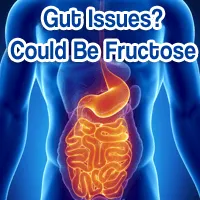
- Share on Facebook2
- Share on Pinterest
- Share on Twitter
If you have irritable bowel syndrome (IBS), you might want to take a look at your diet. Recently, one of the leading experts in bowel health has suggested that the prevalence of high fructose foods in the modern American diet is a large contributing factor in the development of IBS symptoms.
Dr. Satish Rao is a researcher and bowel expert at the University of Iowa. According to Dr. Rao, although fructose has been used as a sweetener by humans for thousands of years, it has not been present in such high levels before. Similar to wheat and gluten allergies, Dr. Rao suggests that high exposure rates have resulted in high levels of sensitivity for many people.
In the past, humans consumed an average of approximately 16 to 24 grams of sweeteners in their diet. Today, the average consumption of food sweeteners is approximately 80 grams per person per day. Dr. Rao states that the dramatically increased amount of fructose that is being consumed by many people is resulting in body toxicity. His research suggests that human bodies are only able to naturally absorb an average of 24 grams of fructose daily. As a result of higher amounts of fructose exposure, the poor gut health of people with IBS may be an indication of malabsorption and the body’s attempts to rid itself of toxic influences of overexposure to fructose.
IBS is experienced by approximately 15 percent of the population in the United States and it may be caused by high fructose corn syrup and high fructose additives in processed foods. High fructose additives are present in almost every processed food, from cookies to soda to ketchup to soup to crackers to sports drinks. Uncomfortable IBS include gas, bloating, diarrhea, constipation and indigestion. Although IBS is not life threatening, it can be extremely uncomfortable and distressing for people experiencing these symptoms. IBS symptoms are also exacerbated by stress and it affects women more often than it does men.
If you have IBS, relief may be as simple as altering your diet. Reading labels to find out which foods contain high fructose ingredients may be enlightening. Try eating whole grain foods, fruits and vegetables and choose water instead of soda and sports drinks. You may start to feel better fairly quickly.
– The Alternative Daily
- Share on Facebook2
- Share on Pinterest
- Share on Twitter

